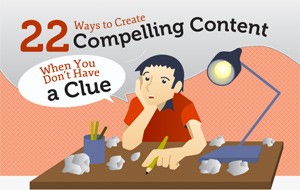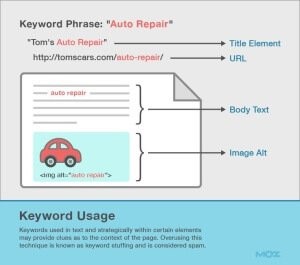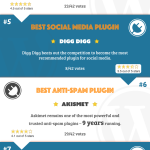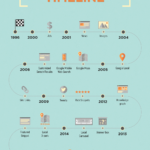If you work in the search engine optimization sector, you’ve probably heard too many times that ‘link-building is dead’. Well, yes and no.
Yes, because links alone won’t get you far these days. Search engines are constantly updating their algorithm; weeding out unnatural links or penalizing sites with spammy content. In fact, Google’s recent Phantom Update affected both small and large websites as it targeted thin, overused, and duplicated content.
No, because links are still the lifeblood of SEO and the Web in general. Besides, how else will we discover other pages? Links are – and will always be – an important aspect of digital marketing. However, only the methods of obtaining them have changed. So if you’re still buying your links or creating them, it’s time to stop.
There are more effective ways to rank your site. Here are a couple of suggestions, tested and proven by other SEO experts.
#1 Mind Your Content
 Content and link-building NEED each other. They’re like peanut butter and jelly: while they’re awesome alone, together, they’re even better. People LOVE compelling content; especially those that deal with personal issues, life hacks, and insider information. Once they find something that tickles their fancy, chances are high that they are going to share it or write about it. There you go: a link without even trying.
Content and link-building NEED each other. They’re like peanut butter and jelly: while they’re awesome alone, together, they’re even better. People LOVE compelling content; especially those that deal with personal issues, life hacks, and insider information. Once they find something that tickles their fancy, chances are high that they are going to share it or write about it. There you go: a link without even trying.
But how do you create persuasive content? Try telling a story. Connect with your audience by giving them a behind the scenes look at how your business works, OR by participating in local events and then blogging about it. Be human – don’t be promotional. Brian Clark of Copyblogger shares this handy infographic on 22 ways to make great content.
Follow this simple rule: if you think you won’t click on your own post, odds are, no one else will either.
#2 Create Relationships
Okay, so you now have a plethora of content that you want to share with the world. Don’t just publish it on any website though – remember: you’re after a) audiences, b) engagement, and c) links. You can get all three if you learn WHERE to post. Begin with your social media accounts: identify your best connections (people who engage frequently with you) and see whether they fit your niche or not (i.e. a blogger specializing in digital marketing). If they do, it’s time to reach out to them.
According to Social Media Examiner, creating lasting relationships with people in your industry increases the chances of attracting the right people to your business. Bloggers for instance, have readers who are interested in particular topics that they write about. These readers not only visit their blog on a regular basis, they also share posts on their personal social media accounts. Should they allow you to contribute on their site, do NOT be promotional.
You are reaching out to them because you want to make a lasting connection that benefits you both – not just because you’re after a link.
#3 Manage On-Site Factors
 Your website is just as vital as the content you publish on the Web. Make sure it’s optimized for users AND search engines by checking on-site factors such as:
Your website is just as vital as the content you publish on the Web. Make sure it’s optimized for users AND search engines by checking on-site factors such as:
- Meta titles and descriptions
- H-tags
- keyword density
- sitemap
- page load speeds
- broken links (404 errors)
- mobile-friendliness
Brian Dean of Backlinko has a great guide you can download to quickly get started. These elements affect how search engines crawl and index your website; thereby influencing how your site appears on search results. If people can’t see you, they won’t know about your products and/or services. Meanwhile, you can use Google Webmaster tools to check for inconsistencies on your pages.
One thing you should not ignore is website responsiveness. A responsive website allows your pages to be viewed seamlessly across all devices, be it a mobile phone or desktop. This levels up your SEO game because users can effortlessly access your information on their favorite device. As mobile-friendliness is now a ranking factor thanks to Google’s new mobile-friendly algorithm update, it’s more important than ever to upgrade your website if you haven’t yet.
Other Tips
Never underestimate the power of little changes. Sometimes, even the smallest modification can make a huge impact to your search engine marketing efforts.
- Use semantic keywords (i.e. synonyms) instead of single keywords within your content.
- Don’t forget to add ‘alt tags’ to your images so they will appear on Google Image searches.
- Study good headline construction. Remember: headlines GRAB a reader’s attention first – so make sure they’re catchy, interesting, and unique.
- Pick mobile-friendly websites to guest post in.
- Engage with other digital marketing experts in your field to help boost brand awareness.
- Comment on their articles, be active on niche forums, and share their links, too!
These techniques are meant to earn you links over a period of 6 months to a year. These are NOT designed for overnight SEO success! When implemented properly, you will have a steady increase of valuable backlinks that are based on quality content, lasting friendships, and your active participation on authoritative websites.








